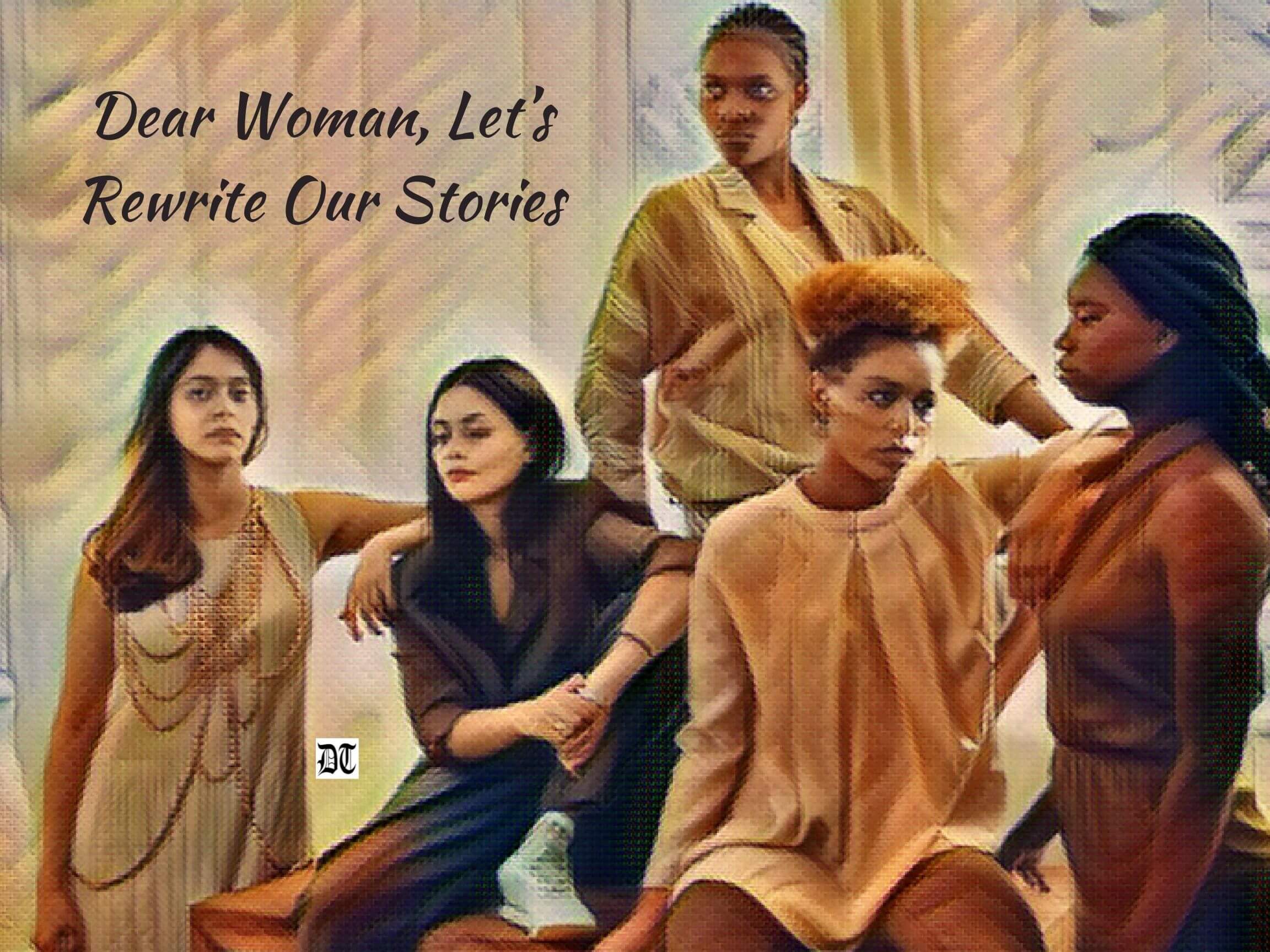Violence inflicted by humans upon their fellow-beings annually causes more than 1.6 million deaths worldwide, making it one of the primary causes of mortality across the globe. In the last century, 191 million people lost their lives in conflicts and violence and over half of them were innocent civilians (WHO, 2002). Thus, 20th century has become one of the most violent periods in human history. The Global Terrorism Index (2014) calculates almost five fold rise of fatalities due to terrorism since 9/11. In 2013, there was 61% rise in the number of people killed in terrorist attacks. Countering these trends, we find that being humane is natural. Archana profiles ordinary people with extraordinary courage. They emerge as the shining stars in these times of desperation, despondency and death. A special feature on World Humanitarian Day exclusively in Different Truths.
This article has been co-authored with Krishnamani Bhagabati
In the contemporary world, violence, wars and disasters are on the rise and the precious human life is not safe. Violence inflicted by humans upon their fellow-beings annually causes more than 1.6 million deaths worldwide, making it one of the primary causes of mortality across the globe. In the last century, 191 million people lost their lives in conflicts and violence and over half of them were innocent civilians (WHO, 2002). Thus, 20 th century has become one of the most violent periods in human history. The Global Terrorism Index (2014) calculates almost five fold rise of fatalities due to terrorism since 9/11. In 2013, there was 61% rise in the number of people killed in terrorist attacks. It is quite shocking that the amount of money America spends on curtailing violence is more than the financial resources spent on top-most industries like construction, real estate, etc., and it equates with seventh largest economy in the world (Institute for Economics and Peace, 2012).
In contrast to other species on the planet Earth, humans have proved their undisputed authority over all the natural and material resources. However, despite making progress in leaps and bounds in economic growth and development, violence, conflicts and disasters have increased exponentially. Different social institutions including religions and political systems, which were meant to serve humans to achieve peace and happiness, became the divisive forces creating conflicts and tensions. It seems that humans have terribly failed in being ‘humane’.
 Once after a sea storm, thousands of fish were trembling to death on the shore. Seeing this horrified scene, one five year old boy couldn’t stop himself and started picking up and throwing back the fish in the sea. His mother intervened, “son, there are countless fish how many fish can you save? Leave it” The boy increased his speed. Mother insisted again, “it doesn’t matter…stop now”. The boy started crying but continued throwing back fish one after another and said, “mom, it matters to this fish….and this fish….and this fish….and this fish….”
Once after a sea storm, thousands of fish were trembling to death on the shore. Seeing this horrified scene, one five year old boy couldn’t stop himself and started picking up and throwing back the fish in the sea. His mother intervened, “son, there are countless fish how many fish can you save? Leave it” The boy increased his speed. Mother insisted again, “it doesn’t matter…stop now”. The boy started crying but continued throwing back fish one after another and said, “mom, it matters to this fish….and this fish….and this fish….and this fish….”
Being humane is indeed natural. Perhaps, we all are born with tender feelings of compassion, love, care and kindness towards our fellow-beings. Then, may be for many of us, socialisation and early childhood experiences block the natural spring of empathy, love and compassion and we become selfish, cold and apathetic towards our fellow beings. Though individual variations do count, collectively, forces of change like industrialisation, urbanisation and modernisation have induced sense of personal success, material accumulation and competition over interdependence, cooperation and support to fellow-beings. Among others, this value system has resulted in increased incidences of human sufferings in the form of acute poverty, marginalization, hunger deaths, destitution, alienation and social exclusion.
 Traditional societies have had the cherished feature of strong
Traditional societies have had the cherished feature of strong  community ties. Shared living and inter-dependence were coupled with sense of responsibility and duty to support one’s community people. Such societies never faced problems of destitution and vagrancy as in the absence of family community people came forward to help. Likewise, if such communities encountered any natural calamity like floods or drought, inhabitants would unite and support each other to fight against the disaster. Religious preaching too propagated the natural trait of humans to serve their needy fellow-beings. Socio-cultural norms and religious values reinforced a strong interconnectedness between the nature (vegetation and all living creatures) and huma
community ties. Shared living and inter-dependence were coupled with sense of responsibility and duty to support one’s community people. Such societies never faced problems of destitution and vagrancy as in the absence of family community people came forward to help. Likewise, if such communities encountered any natural calamity like floods or drought, inhabitants would unite and support each other to fight against the disaster. Religious preaching too propagated the natural trait of humans to serve their needy fellow-beings. Socio-cultural norms and religious values reinforced a strong interconnectedness between the nature (vegetation and all living creatures) and huma ns claiming the duty of humans to preserve and protect this eco-symbiotic relationship with humility. And even today, we come across many individuals, groups and communities who put humanity and humanness at the highest pedestal. These are the people who could ignite their humanitarian aspect to the fullest and touch the chord of kindness and compassion.
ns claiming the duty of humans to preserve and protect this eco-symbiotic relationship with humility. And even today, we come across many individuals, groups and communities who put humanity and humanness at the highest pedestal. These are the people who could ignite their humanitarian aspect to the fullest and touch the chord of kindness and compassion.
Such socially enlightened people have been present in every generation, epitomes being the Buddha, the Dalai Lama, Nelson Mandela, Mother Teresa, APJ Abdul Kalam and the like. These are the celebrated personalities who we all have heard about. But there are many whose works have not seen much light. A few of such exemplary initiatives by individuals who refused to give up the spirit of humanness despite facing several odds are as follows:
 Dr. Rani Bang and husband Abhay Bang set up the Society for Education, Action and Research in Community Health in the remote underdeveloped tribal Gadchiroli district of central India. Dr. Rani, a gynecologist, left her lucrative career for her new abode 20 years back and since then she has been serving the tribal people. She has developed innovative ideas to explain the anatomy of a human body to the locals and also developed new healthcare models which are highly cost-effective and sustainable.
Dr. Rani Bang and husband Abhay Bang set up the Society for Education, Action and Research in Community Health in the remote underdeveloped tribal Gadchiroli district of central India. Dr. Rani, a gynecologist, left her lucrative career for her new abode 20 years back and since then she has been serving the tribal people. She has developed innovative ideas to explain the anatomy of a human body to the locals and also developed new healthcare models which are highly cost-effective and sustainable.
Kozhikode’s (India) District Collector N. Prasanth has come up with a unique and brilliant idea of food coupons named Sulaimani to help the hungry. Under this program, local restaurants ensure that no city inhabitant has to go hungry.
Commonly known as the ‘Ice man of India’, Chewang Norphel utilised his engineerin g skills to create artificial glaciers, which can provide water round the year to the cold and dry mountainous regions of Ladakh. He knew how important it was to control the velocity of water to make his idea of artificial glacier a reality. With his research and help from the community people Norphel was successful to capture water from melted glaciers and store them for the spring season. This innovation has helped the cold desert avail water even in times of natural scarcity.
g skills to create artificial glaciers, which can provide water round the year to the cold and dry mountainous regions of Ladakh. He knew how important it was to control the velocity of water to make his idea of artificial glacier a reality. With his research and help from the community people Norphel was successful to capture water from melted glaciers and store them for the spring season. This innovation has helped the cold desert avail water even in times of natural scarcity.
 Lenin Raghuvanshi, a doctor of Ayurveda and modern medicine, has been working untiringly to put an end to caste based discrimination practiced in Varanasi and the surrounding areas. His comprehensive work in the fields of malnutrition and hunger deaths, bonded labour system, custodial violence, denial of livelihood opportunities has contributed immensely to protect the rights of Dalits, tribes and indigenous people. His involvement in people’s struggle to protect human rights and dignity of the marginalized has invited wrath from his fellow upper caste people and the rogue elements in the state apparatus in the forms of several attacks on his life.
Lenin Raghuvanshi, a doctor of Ayurveda and modern medicine, has been working untiringly to put an end to caste based discrimination practiced in Varanasi and the surrounding areas. His comprehensive work in the fields of malnutrition and hunger deaths, bonded labour system, custodial violence, denial of livelihood opportunities has contributed immensely to protect the rights of Dalits, tribes and indigenous people. His involvement in people’s struggle to protect human rights and dignity of the marginalized has invited wrath from his fellow upper caste people and the rogue elements in the state apparatus in the forms of several attacks on his life.
Beena Rao with the help of a set of volunteers has brought a tremendous change to the lives of over  5000 slum kids in Gujarat. The volunteers take a session of two hours in the evening and do not only teach basic subjects but also impart moral education and encourage them to do craft work. The kids have radically changed, stopped using abusive languages and have started showing better performance in academics.
5000 slum kids in Gujarat. The volunteers take a session of two hours in the evening and do not only teach basic subjects but also impart moral education and encourage them to do craft work. The kids have radically changed, stopped using abusive languages and have started showing better performance in academics.
A Turkish bride and groom, Fethullah Uzumcuoglu and Ersa Polat, shared their joy by feeding 4000 Syrian refugees rather than spending lavishly on their wedding in a normative manner.
A German gay couple hosted 24 refugees from Afghanistan, Syria and Iraq in their Berlin apartment.
Jadav Payeng, a Padam Shri awardee of Indian Government has single handedly planted and attended to thousands of trees and created a forest which in itself is a state of the art.
People affectionately call Ranjan Panda ‘Waterman of Odisha’ as he has been working for more than two and a half decades on water rights of common man. He is a climate crusader, an activist who has spearheaded several campaigns to ensure Right to Water for all, sustaining and preserving eco-friendly water harvesting practices.
Founder of Shri Ramkrishna Sevashram, an almost 100 year old freedom fighter from Sudhanshu Biswas works with the objective ‘imparting man-making education’. He has set up 18 schools and is bringing up 67 orphans through his noble initiative. A visionary, Biswas himself teaches 10th standard Mathematics in his school.
A Delhi University graduate and batch 2009 IAS officer Armstrong Pame, with his extraordinary vision and mission built up a 100 km road connecting Manipur, Nagaland and Assam. Pame with the help of his family and well-wishers built an all-weather road. He is also an example of how social media can be used for the boon of society. Pame through his Facebook page raised funds from all across the world for his dream project. He did not take any assistance from the Government.
 A retired Indian Government employee Gangadhara Tilak Katnam is a man on a unique mission. He utilises his pension to fill potholes on roads and by far has filled over 1500 potholes.
A retired Indian Government employee Gangadhara Tilak Katnam is a man on a unique mission. He utilises his pension to fill potholes on roads and by far has filled over 1500 potholes.
There are many more examples of such heroes who exhibit unflinching courage despite facing several odds in their life because of their fight against injustice caused to fellow-beings. While most of us do not want to leave our comfort zones, they stand rock solid against the perpetrating forces. Oftentimes, they have to pay heavy cost for their humanitarian endeavour, such as lack of financial and human support, threat to life, difficulty in discharging one’s familial responsibilities, and such others. Their work goes unnoticed and unrecognised but these challenges fail to derail them from their chosen path to serve others.
Intrinsically motivated and driven by compassion for their fellow-beings, such champions of humanity are very essential for maintaining and sustaining the democratic values for an egalitarian society. These socially enlightened people act as the backbone of civil society, thereby neutralising the domination of the state and the market. It is not only our moral duty but also dire need to recognize and honour the people who are engaged in selflessly serving the humanity, for, if amongst us such crazy crusaders of humanity are vanished, the planet Earth will no longer remain livable.
The United Nations has designated 19 th August as World Humanitarian Day to appreciate and celebrate the efforts of all those famous and unsung heroes, who continue to bring assistance and relief to millions of marginalised and downtrodden people.
There is a need to document the efforts of such individuals, who extend their help to the needy, take stand and raise voice against the injustice and violation of rights of their fellow-beings and bring them to light, provide them required support in every possible way in their mission to protect values of human rights, social justice and democracy.

While the print and electronic media are being criticized of highlighting the sensationalised and negative episodes and almost overlooking the brighter side of humanity where people reach out to their needy fellow-beings, social media has tried filling that gap. Social media is playing an important role in publicizing such initiatives of human concern and care to ameliorate the sufferings of other humans. The UN Secretary General Ban Ki-moon has aptly stated, “In a world that is ever more digitally connected, each of us has the power and responsibility to inspire our fellow human beings to act to help others and create a more human world”.
Recognition, appreciation and support to such socially conscientised individuals would add to their enthusiasm and missionary zeal to defend and protect human rights of every citizen of the world, safeguard democratic values and realise the dream of an egalitarian, humane, loving and caring community. Lastly, Mahatma Gandhi rightly said, “The greatness of Humanity is not being human, but in being humane”.
References:
Institute for Economics and Peace (2012). Violence Containment Spending in the United States, Retrieved on August 10, 2016 from http://economicsandpeace.org/wp-content/uploads/2015/06/Violence-Containment- in-the- US-Report.pdf
Institute for Economics and Peace (2014). Global Terrorism Index-2014. Retrieved on August 10, 2016 from http://www.visionofhumanity.org/sites/default/files/Global%20Terrorism%20Index%20Report%202014_0.pdf
World Health Organisation (2002). Collective Violence. Retrieved on August 10, 2016 from http://www.who.int/violence_injury_prevention/violence/world_report/factsheets/en/collectiveviolfacts.pdf
©Archana Kaushik & Krishnamani Bhagabati
Pix from Net.




 By
By
 By
By
 By
By
 By
By